MEMRI presents an in-depth analysis by renowned Baloch leader Hyrbyair Marri, the head of the Free Balochistan Movement political platform and one of the most popular leaders among Baloch youth. Mr. Marri was born in Quetta, in the Balochistan region under the rule of the Pakistani government, in 1968, and he currently resides in London. He is the son of the renowned Baloch nationalist leader Khair Bakhsh Marri, who was the chief of the Marri Baloch tribe and head of the National Awami Party (NAP). NAP, comprising Baloch and Pashtun leadership, won elections in Balochistan and Khyber Pakhtonkhwa and formed a Baloch-Pashtun coalition government in 1970s.
Mr. Marri supports the independence of Balochistan from Iran and Pakistan. He promotes a free and democratic Balochistan, in which men and women are treated equally and will be entitled to all rights, protections, and freedoms in all spheres of society.
He has repeatedly stated that both Pakistan and Iran are pursuing a slow-motion genocide against the Baloch people. "Linguistic, cultural, and ethnic genocide is going on in Iran and Pakistan, by Persians and Muslim Punjabis against other nations there, and against the people of occupied Balochistan," Mr. Marri stated.[1]
It is also worth noting that Mr. Marri strongly opposes a nuclear deal with the Islamic republic of Iran, which he described as making a "deal with the Devil." He explained that a nuclear deal with Tehran would mean allowing Iran to have access to "trillions of dollars" that it would be used to make "mayhem" in the region and oppress the people inside the country.
Mr. Marri said that signing the deal would have several implications: "The first one is that the fundamentalist Islamic regime of Iran will never discard its ambitions of becoming a nuclear power. Militarism is a vital component of its existence. The Islamic regime of Iran has no rules in its diplomacy. They say one thing and do exactly the opposite of what they have agreed...
"Secondly, as developed Western countries open their gates toward the Iranian regime and companies, Iran will have greater access to modern technology and knowledge about nuclear science. That will enable them to make their nuclear bomb sooner. Therefore, the agreement may have exactly the opposite effect than what it was intended for."
According to Marri, the nuclear deal would signify giving the "green light" to the repressive Iranian regime to further violate human rights. A deal would also embolden and give credibility to the Islamic republic, making the regime more aggressive toward its neighbours. "Finally, and most importantly, with this agreement the nations under illegal occupation of the regime will suffer the most. The regime will use all its powers to crush the Baloch, Kurd, Arab, Azeri and Turkmen liberation movements. It will not just do that inside Iran but also outside the boundaries of Iran. [Tehran] knows that the international community would not raise its voice against the regime's atrocities." Overall, an agreement would be "bad for world peace." "It is bad for the people living in Iran. It is bad for Iran's neighbours. It is extremely alarming for the states that the regime regards as enemy such as Israel and some of the Gulf States and it brings many dark days to the Baloch nation." According to Marri, the only winner would be the "extremist theocratic" state of Iran.
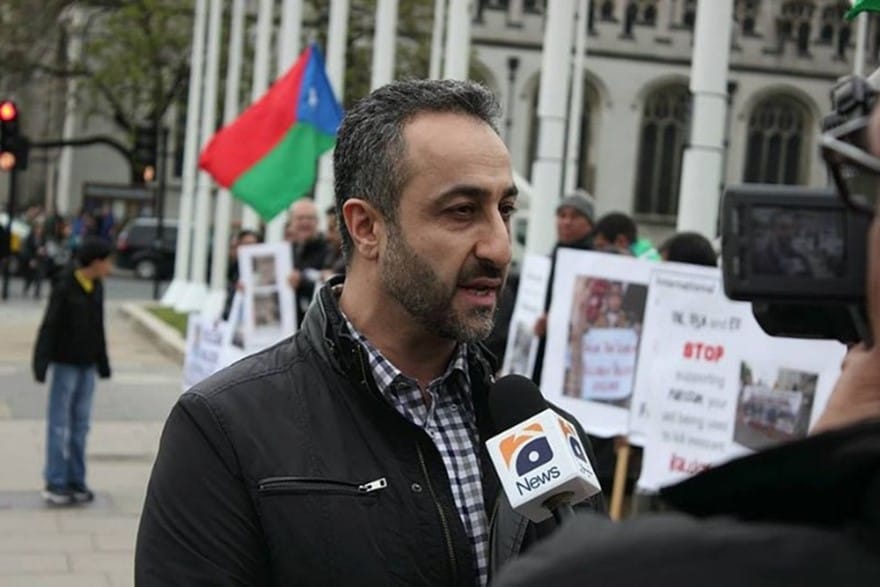
Baloch Leader Hyrbyair Marri
Below is Mr. Hyrbyair Marri's in-depth analysis about the future of an independent, secular and democratic Balochistan:
The History Of Balochistan
Historically known to the ancient Greeks as Gedrosia, Balochistan, meaning "the land of the Baloch," is a country that has long served as a strategic crossroads between South Asia and the Middle East. Characterised by its arid deserts and rugged landscapes, it is a place where Alexander the Great experienced the devastating loss of three-quarters of his army during their retreat from India to Persia. The Baloch people predominantly speak Balochi, an Indo-European language closely related to ancient Median and Parthian languages. Balochistan maintained its territorial unity until its invasion and occupation by the British Empire in 1839.
Well before the unification of modern nation-states like Italy and Germany, Balochistan existed as a unified entity. However, following the British conquest in 1839, the country was systematically partitioned. In 1871, its western part was annexed to Persia (modern-day Iran); in 1893, the northern region was ceded to Afghanistan; and the eastern part was left semi-independent. This division, imposed without the consent of the Baloch people, partitioned the once-unified country and granted its territories to neighbouring states. The British dismemberment of Balochistan is comparable to the partitioning of Poland by Germany and Russia during World War II – with the key distinction being that Balochistan was betrayed by its so-called ally, the British Empire.
After the Second World War, Asia was decolonized, and the British Empire withdrew from our region. The eastern part of Balochistan and India were granted independence, but India was also divided in the name of religion, resulting in the creation of Pakistan. Pakistan was established on Indian and Afghan territory. Alongside India's territory, its military – the British Indian Army, the largest force in human history by 1945 – was also divided. Pakistan was admitted to the United Nations in September 1947. One of Pakistan's first acts as a member of the United Nations was to violate its founding charter by invading Balochistan and annexing it by force. Balochistan existed for centuries as a unified and independent state until it was divided by Britain and then illegally annexed by Pakistan. The Baloch nation has never accepted the illegal division and occupation of Balochistan.
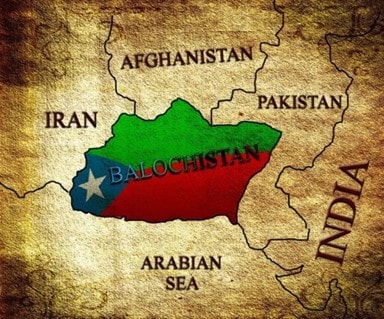
Balochistan
The Baloch Are Not A Minority, But A Nation; Iran Has Weaponized Its Judiciary To Target The Baloch People
To begin with, it is crucial to clarify two key points: first, the Baloch are not a minority, but rather a nation with a unique cultural identity, language, and history. Secondly, the Baloch live in their ancestral homeland, where they have formed the majority for millennia. The comparison between the Baloch situation and that of Europe during Nazi Germany's occupation is illuminating. When Nazi forces occupied sovereign European states in the 20th century, did the French people resisting the occupation become "French minorities" within Germany? Were the Poles in occupied Poland suddenly considered a "Polish minority" in Nazi Germany? Of course not.
Now, imagine if France, with a slightly larger population, occupied and controlled Italy. Would we call the Italian people a "minority" simply because the occupying French state outnumbered them within newly imposed boundaries designed to benefit France? The absurdity of this hypothetical underscores the flawed logic of referring to the Baloch as a minority in their own homeland.
An ethnic group residing in someone else's homeland could rightfully be called a minority. Similarly, a religious group practising a different faith from the majority in a foreign country could be labelled as such. However, a historical nation like the Baloch cannot be considered a minority. The Baloch are not a minority in Iran, but rather a nation under Iranian occupation, actively struggling for the restoration of their independence.
Recent events in Iran highlight this ongoing struggle. On September 16, 2022, protests erupted across Iran and occupied territories following the unjust murder of Jina Amini, a Kurdish woman, by Iran's morality police. Even her name was a symbol of oppression – her original Kurdish name, Jina, had been replaced by the colonial name "Masha" because in Iran, nations like the Baloch, Kurds, Arabs, and Turks are forbidden from using their traditional names. This act of defiance resonated deeply with the Baloch people, who not only protested in solidarity with Jina Amini but also against a heinous crime committed in their own land.[2]
In Chabahar, a 15-year-old Baloch girl named Maho was raped by Colonel Ebrahim Kouchakzai, a high-ranking Iranian police officer. Outraged, the Baloch took to the streets, demanding justice – not only for Maho but for the longstanding Iranian brutalities inflicted on our people. On September 30, 2022, during Friday prayers in Zahedan, the peaceful protest turned into a massacre when the Iranian Revolutionary Guard Corps (IRGC) launched a brutal crackdown, killing over 100 civilians, including women and children, in a single hour. Hundreds more were injured, many of whom were left with permanent disabilities. The attack, known as "Bloody Friday" or the "Zahedan Massacre," is etched into the collective memory of the Baloch as another chapter in their resistance against Iranian occupation.
The repression did not stop in Zahedan. Protests spread to Khash city, where Iranian forces once again opened fire on demonstrators, adding more lives to the toll of the occupation's brutality.[3]
Iran has also weaponized its judiciary to target the Baloch people, executing them under trumped-up charges such as drug offences or accusing them of "Moharebeh" – waging war against God. These trials are often held in secretive, kangaroo courts, where defendants are denied proper legal representation. Although the Baloch make up only 5-8% of Iran's population, they account for an astonishing 20% of executions, further highlighting the disproportionate and systemic oppression faced by the Baloch nation.
The Baloch are not an ethnic or religious minority within Iran – they are a nation under occupation, actively resisting to reclaim their sovereignty.
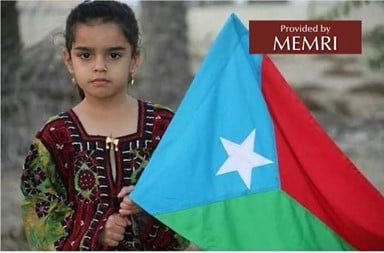
A girl holding the flag of Baloshistan (Source: X)
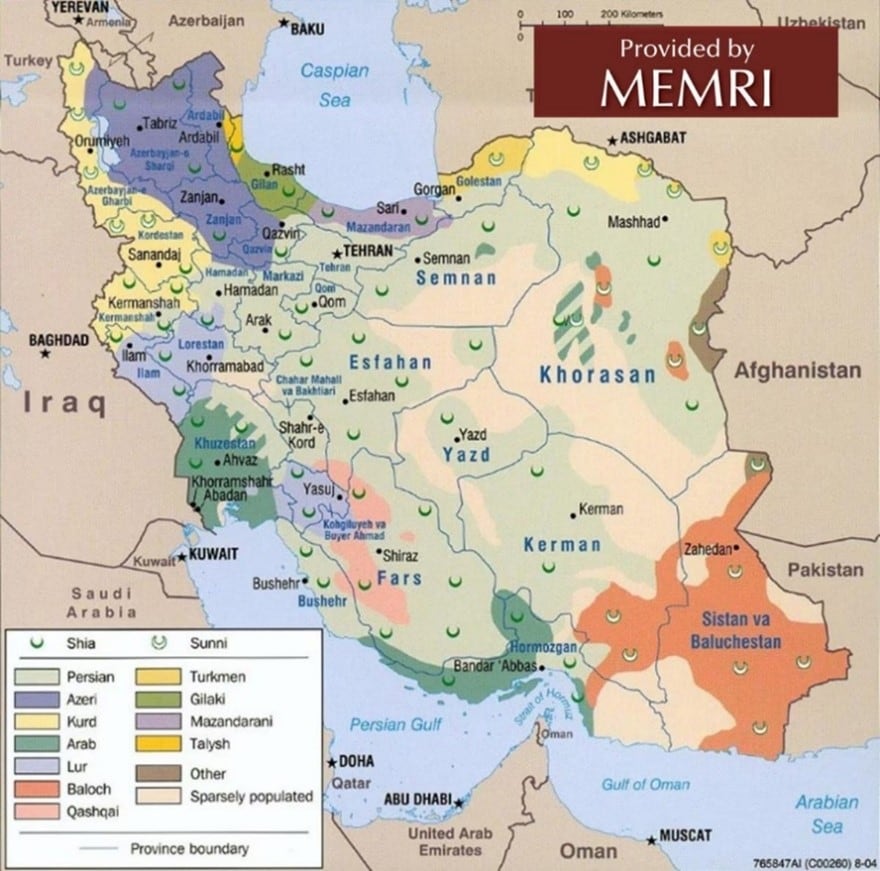
(Source: U.S. Central Intelligence Agency)
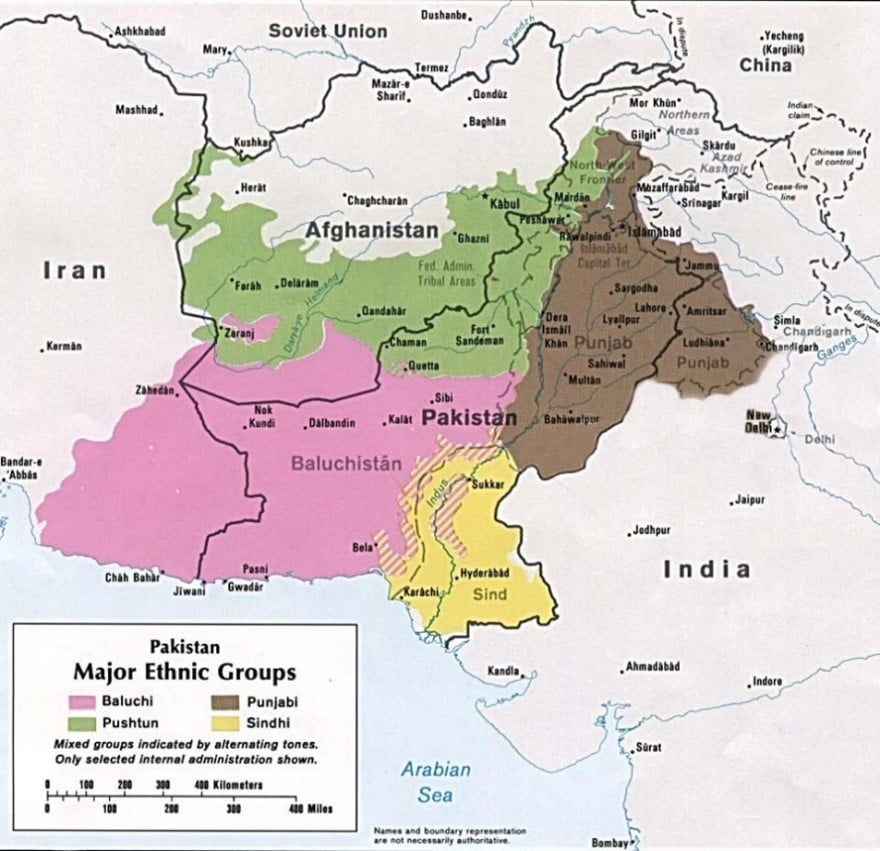
(Source: U.S. Central Intelligence Agency)
China Is A Foe Of The Baloch People; The Agreement Between Pakistan And China Is A Calculated Plan To Exploit Balochistan's Rich Resources
In my previous interviews, I have often described China as a foe of the Baloch people. This is not just a sentiment – it is a harsh reality shaped by China's ongoing support for Pakistan, specifically in countering the Baloch struggle for national liberation. China's role in Balochistan is not just about economics; it is about geopolitics, resource exploitation, and the suppression of a nation's right to national liberation.
China's global strategy, fueled by its economic might, is to impose its hegemony on the free world. One of its most significant tools in this endeavour is the Belt and Road Initiative (BRI), a project aimed at creating military bases in the name of trade routes and infrastructure that benefit China's long-term strategic interests. In Balochistan, this plan is implemented through the China-Pakistan Economic Corridor (CPEC). The agreement between Pakistan and China is a calculated plan to exploit Balochistan's rich resources while providing China with access to the strategically critical Baloch Sea. Through CPEC, China aims to build naval bases along Balochistan's coast, giving it a foothold in the Arabian Sea. Gwadar, a coastal city at the heart of this project, has been turned into a prison city. The local Baloch population is under constant surveillance and control, unable to move freely in their own homeland.
But China's involvement in Balochistan's exploitation started long before CPEC. For decades, China has been aiding Pakistan in its efforts to suppress the Baloch liberation movement, while simultaneously securing rights to exploit the region's vast natural resources. Numerous declared and undeclared mines across Balochistan are under Chinese control, with little to no benefit for the local population. The Metallurgical Corporation of China Ltd. (MCC), a state-owned Chinese mining company, has been at the forefront of this exploitation for over 30 years. One of the most prominent examples is the Saindak project, where China has been extracting Balochistan's gold and copper reserves with little transparency or accountability, funnelling profits back to China and Pakistan while leaving the Baloch people impoverished.
The impact of China-Pakistan's exploitative policies on the Baloch nation is catastrophic. I have often called the China-Pakistan Economic Corridor (CPEC) a "corridor of death and destruction" for the Baloch. Thousands of Baloch have been abducted and disappeared without a trace, hundreds have been killed, and entire communities forcibly displaced to make way for China's resource-grabbing projects. China is not just an economic partner in this; it is actively guiding and aiding Pakistan in its effort to suppress the Baloch national liberation struggle. By providing Pakistan with cutting-edge technology and strategic support, China aims to transform Gwadar into a "Chinese Kaliningrad," a military outpost from which it can dominate the Strait of Hormuz and the Indian Ocean.
Meanwhile, Pakistan is carrying out a demographic overhaul in Gwadar, flooding the region with foreign settlers. By 2048, it is projected that Chinese settlers will outnumber the indigenous Baloch population, further erasing the Baloch identity in their own homeland. This demographic shift, combined with the ongoing repression, is part of a deliberate strategy to annihilate the Baloch nation.
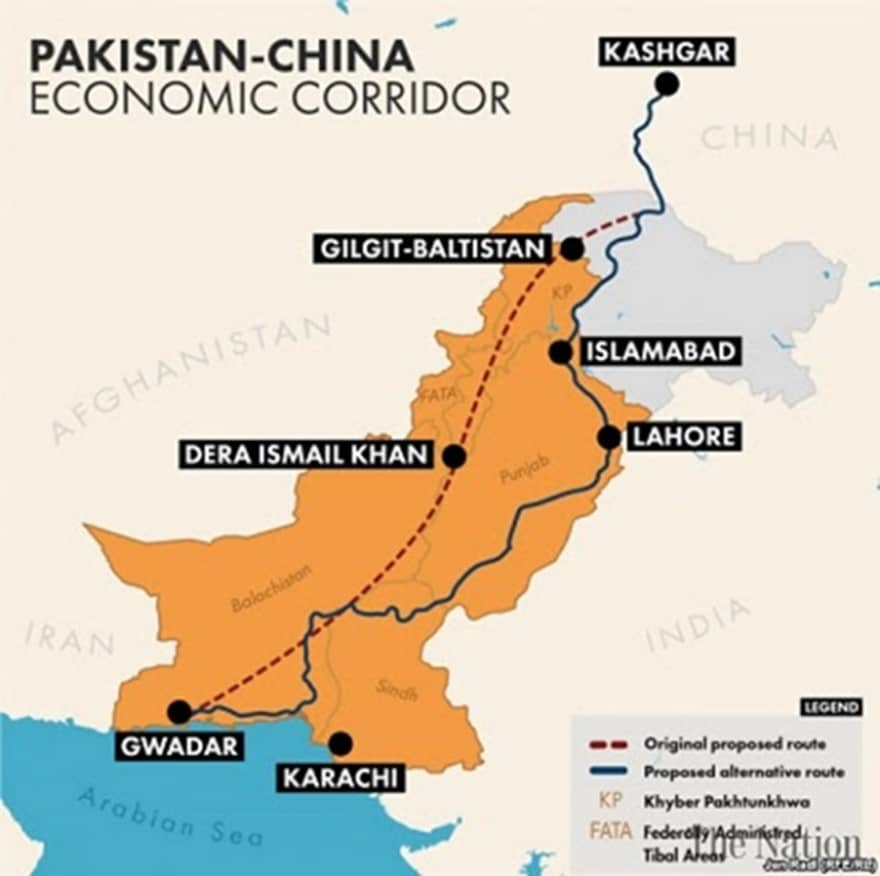
China-Pakistan Economic Corridor (CPEC) a "corridor of death and destruction" for the Baloch (Source: X)
We Make No Distinction Between The Theocratic Iranian regime And Its Regional Religious Proxies; If The Baloch Were An Independent Nation, We Would Never Allow Our Land And Waters To Be Used As A Conduit For Aggression Against Other Nations, Including Israel
It is also worth noting that we make no distinction between the theocratic Iranian regime and its regional religious proxies – they are one and the same. These proxies are merely extensions of Iran's mullah regime, working to further its oppressive agenda. Just like the Iranian state, these proxies are vehemently opposed to Baloch nation's right to national liberation. Iran hypocritically supports these groups, labelling them as "freedom fighters," yet it remains the greatest threat to true freedom in the region. While it backs its proxies, it mercilessly kills and suppresses genuine freedom-seeking nations like the Kurds and the Baloch, branding us as "enemies of God" for daring to stand up for our dignity and national liberation.
Iran has been using Balochistan's seaports to transport weapons to the Houthis in Yemen, furthering its influence and destabilizing the region. If the Baloch were an independent nation, we would never allow our land and waters to be used as a conduit for aggression against other nations, including Israel. An independent Balochistan would uphold principles of regional cooperation and peace, refusing to let fanatic jihadists or Iranian-backed militias operate within its borders.
It is important to remember that Iran's oppression did not begin overnight – it started with its neighbours. The Baloch, Kurds, and Arabs were among the first victims of Iranian occupation and brutality. Once these free peoples were subdued, the Iranian mullahs turned their sights on Israel. There would have been no such crisis in the first place had independent nations like Balochistan and Kurdistan existed. These nations would have naturally resisted Iran's religiously fanatic and expansionist agenda, serving as a counterbalance to the tyranny we see today.
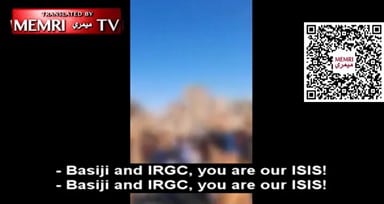
Protests in Zahedan, in Balochistan region under the rule of the Islamic Republic od Iran, in January 2023. Based on the footage, thousands of people attended the protests. The protestors chanted "Mullahs should get lost!", "Basiji and IRGC, you are our ISIS!", "Khamenei – have some honour and leave the country!", and "This is the year of bloody [uprising]!" (See MEMRI TV Clip No. 10079, Protesters In Zahedan, Iran: Death To Khamenei! Khamenei – Have Some Honor And Leave The Country! This Is The Year Of Bloody Uprising! January 20, 2023)

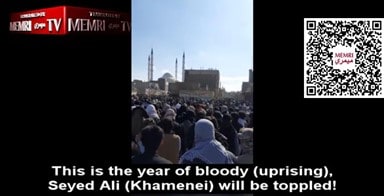
Reza Pahlavi Cannot Offer Any Meaningful Change; The Only Viable Solution Is A Democratic One
Persian diaspora groups living in the West have shown their support to Reza Pahlavi. Mr Pahlavi also said he would establish a transitional government after the regime's collapse. However, the first question we should be asking is: who is Reza Pahlavi, and what does he represent? To understand this, we must analyse the historical context, and then consider the present and future.
Reza Pahlavi is the grandson of Reza Mirpanj, and he was given his grandfather's name by his father, Mohammad Reza Shah. Their original family name was Mirpanj. Reza's grandfather was of mixed Georgian and Mazandarani descent and held a low-ranking position as a military officer in the Cossack Brigade during the Qajar rule in Persia. After the First World War, when Persia was in crisis and nationalist and pro-Soviet forces were vying to replace the Qajar dynasty with a republican revolution, Reza Pahlavi's grandfather, Reza Mirpanj, was installed as the ruler of Persia by the British to protect their interests. His name was changed from Mirpanj to Pahlavi to lend him legitimacy.
In English, Pahlavis are referred to as Parthians, a people who once ruled the Iranian Plateau. Most linguists agree that the Parthian language is closer to Balochi, and some scholars have even suggested that the Parthians may have been Baloch. So, here we have a British-installed figure, who was half-Persian, seizing power in Persia to prevent a republican revolution, and subsequently changing the country's official name from Persia to Iran. Reza Mirpanj launched military campaigns to occupy Arabistan (Al-Ahwaz), suppress the Kurdish movement, and occupy Balochistan. He centralised power, suppressed the people, and resisted the Persian public's demand for a republic. When he began to act independently and leaned towards Germany, he was deposed, and the British Empire installed his son, Mohammad Reza, as the ruler of Iran.
Mohammad Reza, Reza Pahlavi's father, not only massacred the Baloch in Iranian-occupied Balochistan, but also sent military aid, including gunship helicopters and pilots, to Pakistan in the 1970s to help crush the fourth Baloch independence movement. When the Persians eventually revolted against Mohammad Reza, the Mullahs seized control of the revolution, largely because they were better organised than the other political groups. As a result, we now have a theocratic regime that governs Persia and its occupied territories.
So, what is being proposed now by some Israelis and Western elements to address this historical wrong? To restore the descendant of Reza Mirpanj and Mohammad Reza, who are directly responsible for the situation we face today. Putting old wine in new bottles will not solve the issue. For this reason, I do not believe Reza Pahlavi can offer any meaningful change. The only viable solution is a democratic one.
The occupied nations should be free to choose their own path and decide their own future. If the Persians want a monarchy, theocracy, democracy, or a republic, they are free to choose their future within their own independent country. But why should we, the Baloch, suffer for their choices? The Persians supported Reza Mirpanj and his son, who massacred us. Then, when they wanted a revolution, they brought about a fascist Shia Mullah regime that continues to oppress the Baloch, Kurds, Arabs, Turks, and even Persians.
The Persians should be responsible for their own decisions, whether good or bad. As a separate nation, we respect their right to choose their own form of governance. However, neither the Persians nor any other nation has the right to impose their will on the Baloch nation. The Baloch are fully capable of deciding their own future and governing their own country.

Protests in Zahedan, in Balochistan region under the rule of the Islamic Republic od Iran, on January 13, 2023. (See MEMRI clip No. 10058, WARNING – GRAPHIC: Iranian Regime Violently Cracks Down On Protesters In Balochistan; Protestors Chant: Death To Khamenei! Death To The IRGC! January 13, 2023)
The Future Of Balochistan: Independent, Secular, And Democratic
We advocate for secularism and democracy not as a means to appease the West, but because we recognize that these principles are essential for the Baloch nation's survival and growth in today's world. The Baloch nation is not religiously homogeneous; we are a diverse people with various beliefs and ideas. A secular state is the only way to ensure the government remains neutral in religious matters, allowing all citizens to practice their faith freely without interference. Democracy, on the other hand, is the best framework to embrace and celebrate our diversity as a nation, giving every voice a place in shaping our collective future.
We envision a democratic Balochistan, as outlined in our Balochistan Liberation Charter. This charter serves as our guiding document, detailing our plans to create a just and democratic society that prioritizes human rights, equality, and prosperity for all.
An independent Balochistan would also be strategically positioned to benefit from its hundreds of kilometres of coastline along the Strait of Hormuz. This unique geopolitical location offers us a historic opportunity to leverage our strategic importance for the development of our nation and the broader region.
Let me reiterate something I have said before: it is not the Israelis who come in the dead of night to break down doors and abduct Baloch people. When it comes to international relations, we seek to build partnerships based on mutual respect with all nations, including Israel and Western states.
For example, Balochistan's landscape is predominantly arid, with scarce water resources. Israel, with its expertise in precision agriculture and seawater desalination, has proven how advanced technology can transform even the most challenging environments. Imagine the possibilities for Balochistan if we could collaborate with countries like Israel – our region could undergo a transformation, providing sustainable growth for both our people and our neighbours. An independent Balochistan would not only ensure the well-being of its citizens but also contribute positively to regional stability and development.
*Hyrbyair Marri, the head of the political platform called the Free Balochistan Movement. Follow Mr. Marri's activities on his X account, @hyrbyair_marri
[1] See MEMRI Daily Brief No. 483, Renowned Baloch Leader Hyrbyair Marri: A Nuclear Deal With Iran Is A Deal With The Devil, May 22, 2023.
[2] See MEMRI Special Dispatch No. 11560, Two Years Since Jina Amini Was Killed By The Islamic Republic Of Iran, September 16, 2024.
[3] See MEMRI Inquiry & Analysis Series No. 1790, All Eyes On Balochistan – Remembering The Victims Killed By The Islamic Republic Of Iran In The Zahedan Massacre, September 30, 2024; MEMRI Daily Brief No. 656, All Eyes On Balochistan – Two Years Since The Islamic Republic Of Iran Killed Khudanoor Lajai, October 7, 2024.




